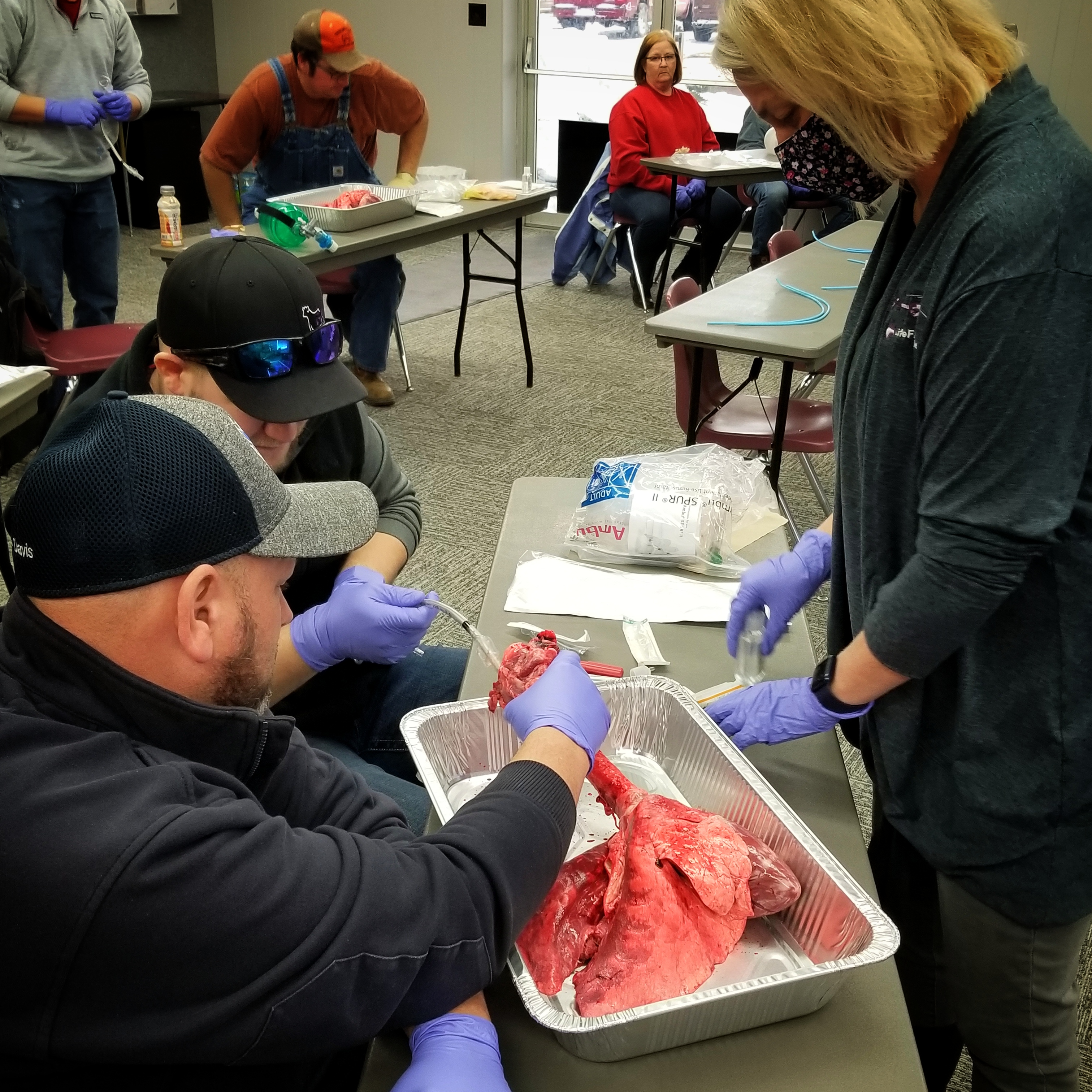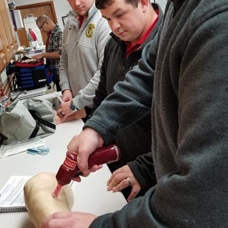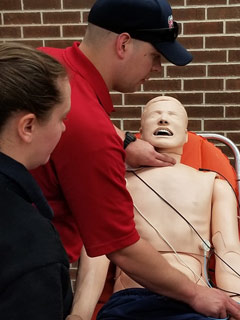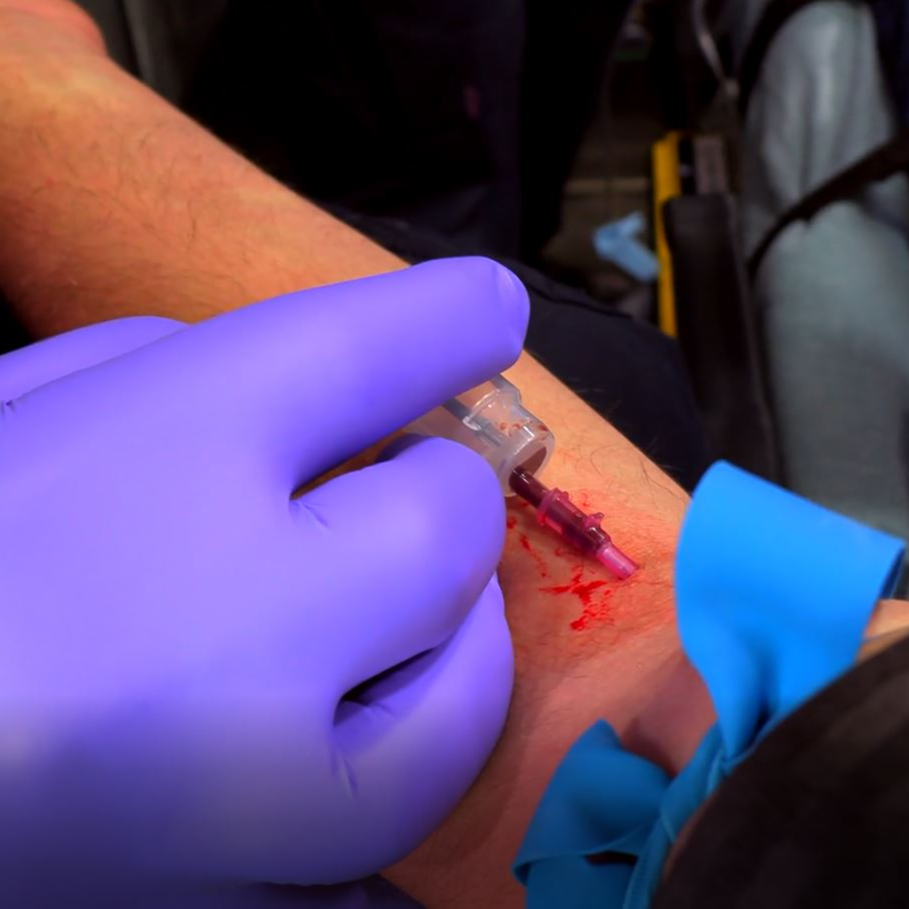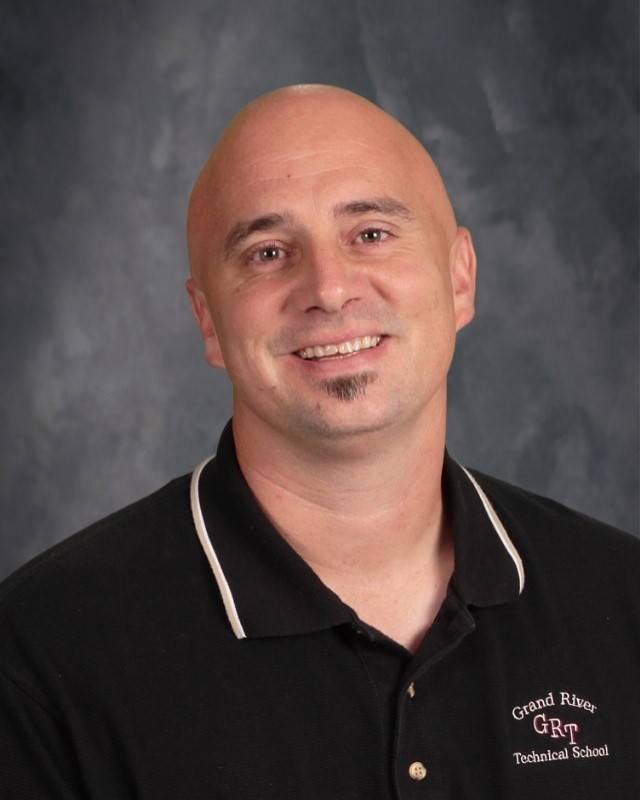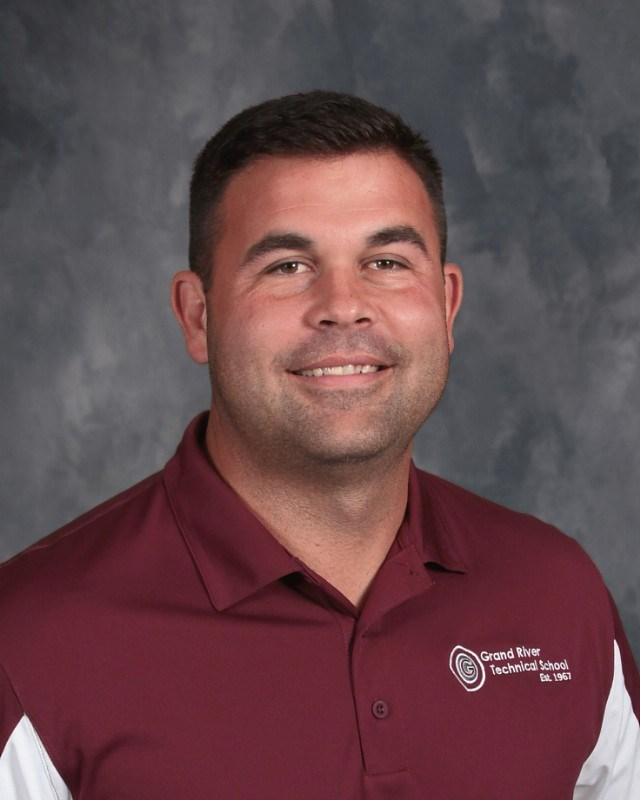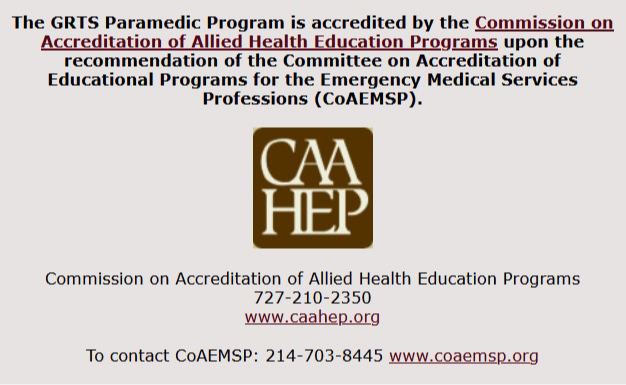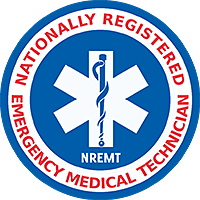EMT - Paramedic - Firefighter
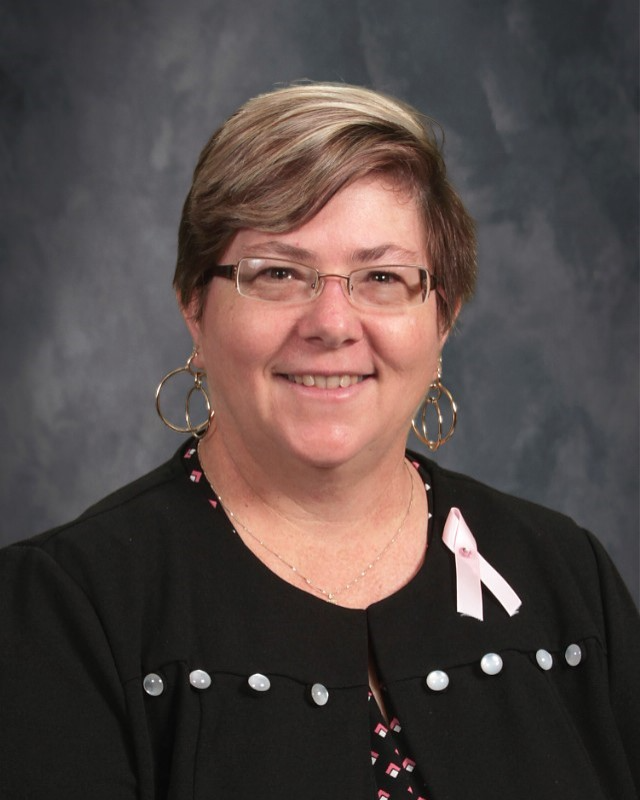
Sondra Sturguess
Adult Ed Coordinator
660-646-3414 Ext. 20230
ssturguess@grts.org
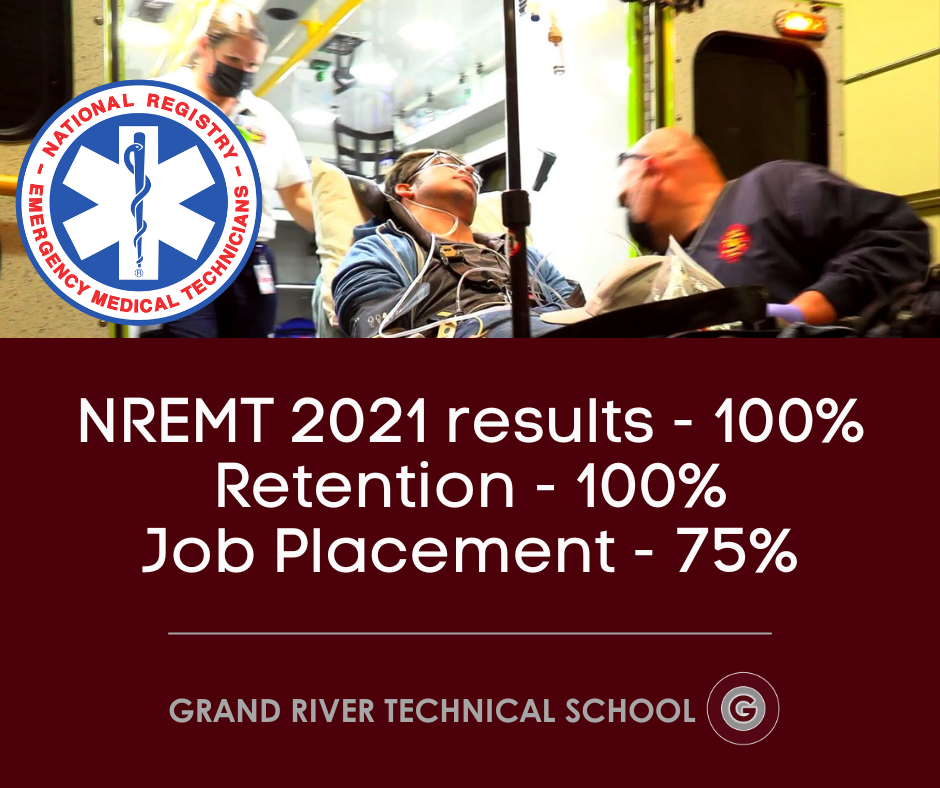
The 2023 CAAHEP Standards and Guidelines for the Accreditation of Educational Programs in the Emergency Medical Services Professions expectations statement:
“To prepare Paramedics who are competent in the cognitive (knowledge), psychomotor (skills), and affective (behavior) learning domains to enter the profession.”
The Grand River Technical School's EMS programs consist of following courses with an estimated 2 year completion if taking all three:
Emergency Medical Technician (EMT) - approximate 5 month course
Firefighter I & II - approximate 6 month course
Paramedic - approximate 1 year course (prerequisites required)
+ + +
Lives are saved every day due to the quick reaction and competent care of EMS personnel. Missouri EMS personnel respond to over half a million calls annually for incidents as diverse as heart attacks, automobile accidents, drownings, childbirth, and many more. All of these require immediate, and oftentimes, life-saving medical attention.
Emergency Medical Technicians (EMTs) provide critical care in an emergency setting. They are trained to care for patients on accident scenes and in transport by ambulance to the hospital under medical direction. The EMT has the emergency skills to assess a patient's condition and manager respiratory, cardiac, and trauma emergencies. The scope of duties performed by an EMT depends upon their experience and certification level.
EMT is a part-time entry-level position and is usually under the supervision of a licensed Paramedic. Upon successful completion of the course, the student is then eligible to sit for the National Registry of Emergency Medical Technicians examination for the EMT-Basic. Once this examination is successfully completed, the student may then apply for Missouri licensure as an Emergency medical Technician-Basic.
Paramedics provide the most extensive pre-hospital care, which includes administration of intravenous fluids, use of manual defibrillators, advanced airway treatment, administering necessary drugs, interpreting EKGs, performing intubations, and using lifesaving equipment.
The Paramedic program is available to prospective students as either a certificate program or students may pursue an Associate of Applied Science Degree. The Associate Degree program includes all of the courses required for Missouri EMT-Paramedic certification as well as a general studies curriculum. Prerequisites include:
A current Missouri or NREMT license and,
Human Anatomy & Physiology (2 courses equivalency) for college credit
may be taken prior to or concurrently with the GRTS Paramedic course, but it MUST be taken
official transcript received from college where A&P course was taken
minimum of a 2.0 GPA
Upon successful completion of the course, the student is then eligible to sit for the National Registry of Emergency Medical Technicians examination for the EMT-Paramedic. Once this exam is successfully completed, the student may then apply for Missouri licensure as an EMT-Paramedic.
Paramedics, licensed in the State of Missouri, qualify for and can receive advanced placement into an Associates of Applied Science degree in EMT-Paramedic through North Central Missouri College in Trenton, Missouri. Thirty college hours will be awarded for completion of the paramedic program, which is applied to the associate degree program. NCMC provides two degree options: Management and Allied Health (see below for details).
EMT/Paramedic Goal Statement: To prepare competent entry-level Paramedics in the cognitive (knowledge), psychomotor (skills), and affective (behavior) learning domains with or without exit points at the Advanced Emergency Medical Technician and/or Emergency Medical Technician, and/or Emergency Medical Responder levels.
Firefighters are frequently the first emergency personnel on the scene of a medical emergency or a traffic accident and of course, may put out fires, treat injuries, or perform necessary tasks. Fires and other emergencies claim thousands of lives and destroy billions of dollars’ worth of property each year. A firefighter’s job is to help protect the public against these dangers.
Firefighters have taken on a wide range of responsibilities, including emergency medical services. In fact, most calls to which firefighters respond involve medical emergencies, and approximately 50% of all fire departments also provide ambulance service for victims. Firefighters are trained in emergency medical procedures, and many fire departments require their firefighters to be certified as EMTs as well.
+ + +
The Bureau of Labor and Statistics shows a rise in demand for EMS workers at twenty-four percent through 2024. Through the recent pandemic, healthcare workers along with EMS personnel were considered "essential" and the career field for them is in higher demand than ever before. Employment opportunities will continue to rise as population growth and urbanization increases the demand for full-time EMTs and paramedics.
Associates of Applied Science
An Associates of Applied Science degree is available through the collaboration of the Grand River Technical School and North Central Missouri College. Once a paramedic is licensed in the State of Missouri, they qualify for and can receive advanced placement into an Associates of Applied Science degree in EMT-Paramedic through North Central Missouri College in Trenton, Missouri. Thirty college hours will be awarded for completion of the paramedic program, which is applied to the associate degree program. NCMC provides two degree options: Management and Allied Health.
NCMC Degree: Associate of Applied Science
NCMC Program: Emergency Medical Technology - Paramedic (EMT-P): Management Track
GRTS Program: Emergency Medical Technology
Program Curriculum: English I, Speech or Interpersonal Communications, American History I or National Government, Math for Allied Health Science, Anatomy & Physiology, Employment Strategies, Psychology of Supervision, Principles of Management, Human Resource Management, Micro-Computer Applications I (62 total credit hours)
Specific criteria must be met before credit is awarded:
Application for college admission
Official transcripts from all previous educational programs (high school or GED, vocational schools, and colleges)
Evidence of EMT-P program completion from private training entity
Proof of current Missouri licensure as EMT-P
ASSES or ACT (for academic counseling/course placement)
Maintain 2.0 (C) cumulative GPA to graduate
Completion of the 32 college credit hours required for the degree
Complete a minimum of the last 15 credit hours at NCMC
